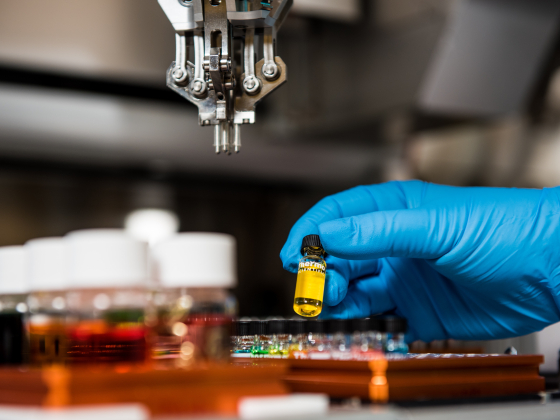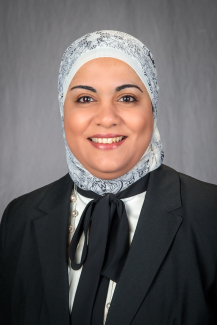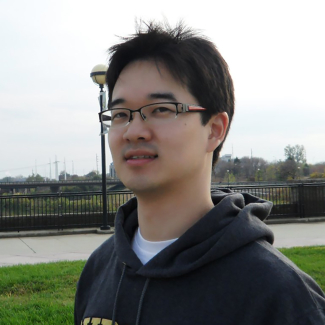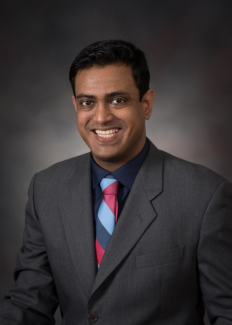
CTCB Pilot Projects
Current Pilot Projects
Former Pilot Projects
Identification and development of novel quorum sensing small molecule inhibitors for the control of Salmonella infections
Yosra A. Helmy, Ph.D.
Assistant Professor, Department of Veterinary Science, College of Agriculture, Food and Environment
August 2022 - July 2025
Salmonella is the leading cause of bacterial foodborne poisoning with significant public health importance worldwide. Currently, Salmonella infections are controlled by antibiotics and/or vaccination, however, their effect is limited due to the emergence of antibiotic-resistant strains. Therefore, there is a critical need for antibiotic alternatives to control Salmonella food poisoning and antimicrobial resistance in humans. Quorum sensing plays a critical role in the pathogenicity, virulence, biofilm formation, motility, genetic competence, sporulation, and antibiotic production of several bacteria including Salmonella. Therefore, inhibition of quorum sensing activity using small molecules can be a potential novel strategy for antibacterial development. Dr. Helmy’s research program aims to develop new anti-Salmonella therapeutics that work alternatively to antibiotics to control the emergence of antibiotic-resistant Salmonella associated with animal production and control food poisoning in humans.

Deciphering the commensal microbial metabolites, which modulate novel targets of the intestinal microbiota associated with metabolic diseases and infections
M. Ashfaqul Alam, Ph.D.
Assistant Professor, Department of Microbiology, Immunology & Molecular Genetics
April 2021 - January 2023
The alteration in gut microbiota, which is termed microbial dysbiosis, is associated with many diseases and infections. Dr. Alam’s research program aims to decipher novel microbial metabolites and small molecules critically impacting diverse basic biological processes. Dr. Alam’s proposal seeks to harness the knowledge of gut microbial metabolites, which could provide novel therapeutic potentials by targeting microbial metabolism to restore a healthy microbiome, eliminate enteric pathogens and ameliorate diseases.

Combinative multi-stage strategies for locomotor and somatosensory functional recovery after spinal cord injury
Jonghyuck Park, Ph.D.
Assistant Professor, Pharmaceutical Sciences
April 2021 - January 2022
Traumatic primary spinal cord injury (SCI) impairs the quality of life for patients, with permanent loss of function below the injury. Currently, therapeutic strategies mainly target locomotor recovery and very little attention has been devoted to understanding somatosensory dysfunction although up to 80% of SCI patients experience significant neuropathic pain within months after SCI. Dr. Park’s research program aims to establish translatable combinative therapeutic strategies at multiple phases of SCI to reprogram an inhibitory microenvironment for locomotor and somatosensory functional restorations simultaneously after SCI.

A study of macrophage gene expression in sarcoidosis and the effect of azithromycin derivatives
Parijat Sen, MD
Assistant Professor, Internal Medicine (College of Medicine)
Igniting Research Collaborations (IRC) and COBRE for Translational Chemical Biology co-Pilot
January 2021 - January 2022
Sarcoidosis is a multi systemic granulomatous inflammatory condition affecting more than 200,000 Americans and many more globally. Due to a lack of clear understanding of the involved immune pathways, current therapies are mostly limited to various systemic immunosuppressive agents. This project aims to explore the effect of azithromycin, an FDA-approved antibiotic with immunomodulatory properties, on gene expression in macrophages (a predominant inflammatory cell forming sarcoid granulomas) through transcriptomic assays. The pilot also aims to explore a library of synthetic derivatives of azithromycin to try and identify compounds which retain the immunomodulatory effect on macrophages but lack antimicrobial properties. This project involves a diverse team with expertise in clinical care of sarcoidosis, immunology and biosynthetic molecular development to identify novel targets and molecules for sarcoid therapy.
Co-PIs: David Feola, PhD, PharmD (Pharmacy Practice & Science); Jamie Sturgill, PhD (Internal Medicine, College of Medicine), Steven Van Lanen, PhD (Pharmaceutical Sciences)

